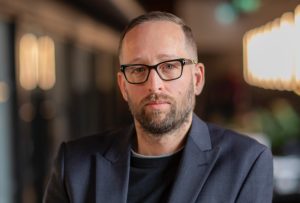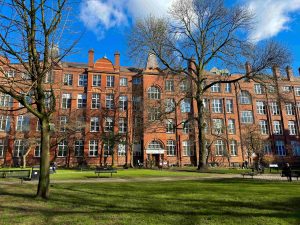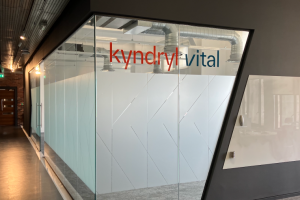Carney’s post-Brexit comfort for Liverpool and Northern Powerhouse

THE Port of Liverpool can shrug off its post-Brexit vote blues by binding into the Northern Powerhouse economic region, according to Bank of England governor Mark Carney.
Visiting the city to deliver the 144th Roscoe Lecture for Liverpool John Moores University last night, Everton supporter Carney delivered a sobering message in the city which voted predominantly to stay in the EU.
Asked how Liverpool should proceed in the wake of the June 23 vote for the UK to leave the EU, Carney told an audience of about 1,000 people at the BT Convention Centre: “The first thing to do is to recognise the progress that has been made.
“Take tourism and retail, that have built on the city’s historic strengths. Look at Liverpool ONE. It’s now the fifth largest retail destination in the UK.
“It’s got true momentum and you’ve got a critical mass of entrepreneurs here who can think of what comes next.
“I wouldn’t look necessarily to Europe for funds for that – more at the people in this room to have the ideas to push what is a pretty attractive set of assets that are now starting to get together.
“When the Northern Powerhouse comes together, I would stay with the programme, with a bit more of the private sector.
“The value of linking the North West as tightly as possible with the rest of the country is absolutely in keeping with this.”
Carney said he believed one of the reasons for the Brexit vote was the feeling among many people that they were “losing control”.
“That is something that absolutely is felt in any community,” he said.
“It’s felt because of the huge forces of global trade and those rapid forces of technology. The sense that my job could go in the future and where am I going to get the skills not to be in that position.
“The question is how do you equip people at local level so that they will be ready for those changes. I think that some people judged that being part of the EU was not the best way to deal with this.
“The challenge in the UK is to make sure people are skilled and make sure people are connected.”
In the lecture Carney spoke of a “lost decade” since the financial crisis of 2008 in which real incomes have been steadily falling at a rate not seen since Liverpool’s “golden age” of the 1860s.
“Today we meet in the first lost decade since that time,” he said. “We meet in the aftermath of a global crisis and in the midst of a technological revolution which is once again changing the nature of work.”
He said since 1960 per capital income has risen by more than x2.5 and life expectancy had risen by more than two decades.
“But despite such immense progress many citizens in advanced economies have lost trust in the system because of their own experiences,” he said.
“To them, rather than a new golden era, globalisation is associated with low wages, insecurity, stateless corporations and striking inequality.
“These anxieties have been compounded by the crisis at the heart finance. When the financial crisis hit the world’s largest banks were shown to operating in a heads I win tails you lose bubble.
“There was widespread rigging of some core financial markets exposed and masters of the universe became minions. Few in positions of responsibility took theirs.
“The taxpayers and citizens paid the heavy price. A consequence of all of these developments was that public support in the global markets was waning.
“Turning our backs on the global market would be a tragedy but it’s a possibility.”

![PPV.FREE ! Ways To Watch New York Knicks vs Detroit Pistons Game 6 Live Streams NBA Playoffs [PPV] and TV Channel](https://www.thebusinessdesk.com/northwest/wp-content/themes/thebusinessthemeMKII/assets/images/bg-white.png)






